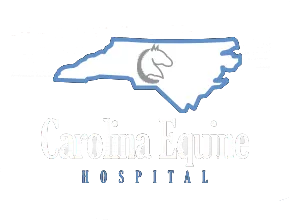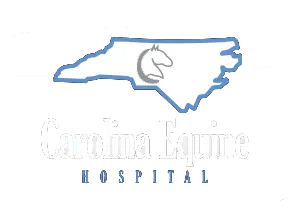The 7 Keys to Basic Horse Care
- posted: Feb. 19, 2021
Congratulations! You just rescued, bought, or adopted your first horse! This is a very exciting time, and you will be riding this excitement for a while! To set your new equine companion up for success, make sure to keep up with his basic care. Nutrition, grooming, health care, hoof care, and shelter are the most important basic aspects of your horse’s health that you need to keep up with. Keep reading to learn more about each important aspect of keeping your new horse happy and healthy.
Nutrition - One of the most important parts of horse health is making sure your horse is being fed enough and fed correctly. Just like with anything else, feeding your horse too little can cause him to lose weight and feeding him too much can cause him to become overweight. Not all feed will work for everyone. Some horses have special nutritional needs, and you can find out what the ideal diet is for your steed by going over your horse’s health with your veterinarian.
Hydration- Just like with humans, hydrating your horse is crucial to remaining healthy. An average size horse drinks around 5-6 gallons a day, this does not take into account any stall rested horses (they may drink less), horses being worked (a bit more), or lactating mares (which should drink twice this much)! If your horse doesn’t appear to be drinking as much water, try to give him some electrolytes to encourage him to drink more.
Grooming- Grooming your horse is one way to keep him healthy and to bond with him. While not every horse enjoys being groomed, the ones that do can sometimes become so relaxed that they fall asleep! Grooming helps improve your horse’s coat while getting rid of dirt that he may have picked up while he was out rolling around, being a horse during turnout. Being up close and personal with your horse’s body also helps you stay aware of any skin or eye issues that he may be dealing with. Many people have no idea their horse has a tick attached to them or is dealing with an eye ulcer until they pull them out of the pasture and give them a once over.
Hoof Care- Like they always say, no hoof- no horse! Taking care of your horse’s hooves is crucial and finding a good farrier is your key to avoiding lots of hoof issues! Horses should have their hooves trimmed around every 6 weeks (this may vary horse to horse). If your horse is participating in a sport he may need specific shoes to help him with grip (you can speak with your farrier about the best shoes for his needs). If your horse has complicated hoof issues or suffers from any disease that may make his hooves need more frequent attention, speak with your veterinarian and farrier about how often he needs to have hoof care. Picking out your horse’s hooves daily is a good habit to develop as this will prevent him from getting rocks lodged in his hooves and will help you stay aware of any hoof issues he develops.
Shelter- When it comes to letting your horse out in a pasture, having a safe shelter for him to retreat to in heat or bad weather is very important. If your horse lives outdoors or if he must be outside during the day, provide your horse a place he can use to escape from the elements. A run-in shed is best. Trees provide good shade when the sun is in the right spot, but when the sun moves those trees will no longer be a good source of shade. Make sure to have multiple shade sources so your horse is protected no matter where the sun is in the sky.
Love- This may be one of those things that you would assume horses naturally feel but going out of your way to give your horse some extra love and attention isn’t time wasted. Spending some time scratching him behind his ears (if he likes that), or giving him a super thorough brushing because you know it’s his guilty pleasure really shows your horse that you care about him. Remembering his favorite treat and keeping it well in stock is also a key to most horse’s hearts!
Routine Health Care- Besides having your own equine first aid kit on hand, one of the most important members of your equine success team is your veterinarian! He or she can offer health advice and come out to see your horse during after hours emergencies. Below are some things you will be calling your vet to help you with:
- Vaccines- Your veterinarian will recommend that your horse gets vaccinated every six months. These vaccines will help protect him from diseases that he could get in the area where he is boarded. While some vaccines can be bought at the feed store, most vaccines that your veterinarian brings to give your horse are covered by the company that manufactures them so if your horse gets vaccinated by the veterinarian with one of these and still gets the disease, the manufacturing company will help with the care costs of the horse.
- Deworming- Keeping your horse parasite free can help him from developing issues down the road. To know how many parasites a horse has, the doctor may perform a fecal test to check the number of eggs per gram. Based on the results, the doctor can come up with a deworming plan for each patient. Lower numbers of parasites are going to be treated with different dewormer paste than those with high parasite counts, so it is very important to get a fecal test done so you don’t give your horse the wrong thing.
- Coggins Test- You may be interested in showing or taking your horse off of your property for a horse trail ride with friends. One requirement that you will need to take him on the road is a Coggins test. This is a test that is done to check for Equine Infectious Anemia. EIA is a potentially fatal disease caused by a virus that can infect all types of equines, including horses, mules, zebras, and donkeys. In most cases, the disease begins with an acute phase of illness, followed by chronic symptoms which continue throughout the remainder of the horse’s life. Some horses do not show any symptoms but can still be a source of infection for other animals.
- Dental Floating- If your horse doesn’t have a healthy mouth, he can’t chew his food properly and may suffer from weight loss or mouth pain. Dental floating helps to keep the mouth in good working order and keeps the teeth even so the horse can chew correctly. While most vets suggest a dental floating every year, every horse is different. Older horses may need their teeth checked every six months and younger horses may need to have theirs checked more frequently as they grow.
Carolina Equine Hospital
Our wonderful clients are getting new horses all the time and we love getting to meet them! We also love getting to set our new patient up for success by making sure he is getting the care he deserves and the health care that will keep him strong and healthy for years to come! Got a new horse? Give us a call to make sure you’ve got all of your bases covered!
Location
Find us on the map
Browns Summit Location
5373 NC Hwy 150
Browns Summit, NC 27214, United States

